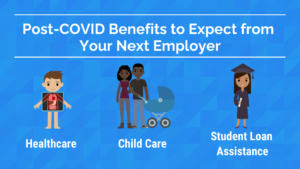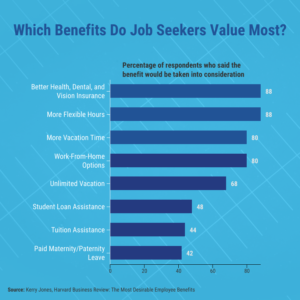
Finding that first job after graduating or starting a career change can be one of life’s greatest challenges. Getting a solid job in the industry you want to work in, however, can open doors to success that lasts a lifetime. That makes landing a strategic job worth all the effort you put into it.
That effort starts with your resume. Putting together your resume, whether it’s your first time or just the first time in years, can feel daunting. However, it doesn’t have to be. With a few clever tips, tricks, and savvy hacks, your resume will communicate your talent and experience clearly to all potential employers.
Get ready to wow at your next job interview with these 7 simple hacks that you can use on your resume today.
The structure should depend on the stage of your career
First, it’s important to think about the overall structure of your resume. Where should each section go — what sections should you have in the first place? First, it’s a good idea to make a distinction between an early career resume and a mid- or late-career resume.
What’s the difference? In an early career resume, you probably don’t have too much work experience to brag about. If you do, good for you, you busybody! Either way, it’s likely that the most impressive achievement you have accomplished so far is your schooling. Whether that’s an associate’s, bachelor’s, master’s degree, or technical schooling certification, if you’re looking for your first job, it’s smart to put your degrees or certificates first on your resume.
- Takeaway: if you’re early in your career, your resume should lead with an Education section.
Those whose school days are long behind them, and who have been working in the career world for some time (maybe 7 years or more) should think about leading with their job experience. It’s likely that you have spent a good amount of time seriously developing your leadership, communication, management, and teamworking skills while on the job by that point in your career. Sure, your schooling is pretty impressive, but employers will want to know what you’ve done since you graduated.
- Takeaway: if you’re in your mid-to-late career, think about putting your Work Experience first, then your education later.
Once you’ve settled on the order of the general sections, it’s time to think more specifically about how you’ll lay out your work and schooling experiences.
Make sure your resume tells a story — chronologically
Employers reviewing applications often don’t have a ton of time on their hands to sort out confusingly laid-out resumes, so one way you can make it easy for them (and give yourself a more comprehensive look) is by laying out your resume chronologically.
In each section, Education and Work Experience, be sure to lead with your most recent position. Employers are probably more interested in your work managing a team of programmers for five years than the internship you had as an undergrad.
Once you’ve correctly laid out each section chronologically, it’s time to think about the story that your resume tells. Remember, that reviewer is on the clock, and you want to communicate to them as concisely and effectively as possible what value your experience and education will bring to their company.
If you’re applying to jobs in a few different industries, consider having different resumes for each one. You may have a variety of experience that’s relevant more to one industry than another, and your resume is your chance to highlight that.
Depending on the type of job you’re applying to, it’s okay to spin each position you worked for to best match that role. The truth is that, in most jobs, you’re likely performing a variety of responsibilities, so it’s totally okay to highlight the aspects of your past work that tells the most coherent and engaging story about your schooling and work experience so far. That brings us to our next tip.
Always highlight achievements from past experiences
Your resume is your highlight reel. You want potential employers to see clearly and quickly how you will add value to their company or organization. When crafting each entry describing past work experience, it’s likely not worth it to list out everything that you did at each job. Sure, it’s great that you can answer emails or do the basics of what your past jobs required of you, but that’s not the stuff that will set you apart from everyone else in the pile of resumes.
So, rather than simply describing the duties of your past jobs under each entry, list 2 to 4 noteworthy accomplishments you made while working there. Perhaps you solved a really tricky programming puzzle that no one else on your team could. Or maybe you wrote an article that brought more views to your site than any other for months. Maybe you were able to settle a difficult disagreement among coworkers and got your team back on track. Whatever it is, highlight it on your resume; it makes it clear how much value you can contribute to your new workplace.
Devote a section specifically to your skills
Next, it’s a smart idea to create a section for your skills. The way you decide to incorporate it design wise (more on that below) is up to you, but commonly, people have a box that lists their skills toward the bottom of the resume, or along the side.
Skills are concrete abilities you have that you will be able to start using the day you step into your new role. Maybe it’s web design, or using engineering software, or writing search engine optimized marketing copy. Whatever it is, employers want to know if you have the skills for the job. Your skills section is the place to make that completely clear.
Get creative with design, but keep it professional
Resumes have advanced beyond the classic Word document in Times New Roman font. Sure, for some employers (think law firms or accounting agencies), that’s still the gold standard. However, for many employers, having a creative resume with beautifully designed elements is a great way to stand out.
Luckily, there are plenty of free or inexpensive templates available online. So, even if you’re not a professional graphic designer, you can still have a gorgeously designed resume, laid out perfectly to draw potential employers’ attention directly to the parts of your experience you most want to highlight.
Resume design and layout isn’t an exact science, but by having the right structure and content, you increase your chances of landing that dream job you’ve always wanted.
At the end of the day, writing a resume can still be a daunting task. Trying to write objectively about yourself can be difficult. If you need help in crafting that resume to sell yourself to a potential employer, you may want to consider hiring a professional resume writer who has years of experience developing resumes to highlight all your achievements and skills.
Samantha Rupp holds a Bachelor of Science in Business Administration and is the managing editor for 365businesstips.com. She lives in San Diego, California and enjoys spending time on the beach, reading up on current industry trends, and traveling.

















